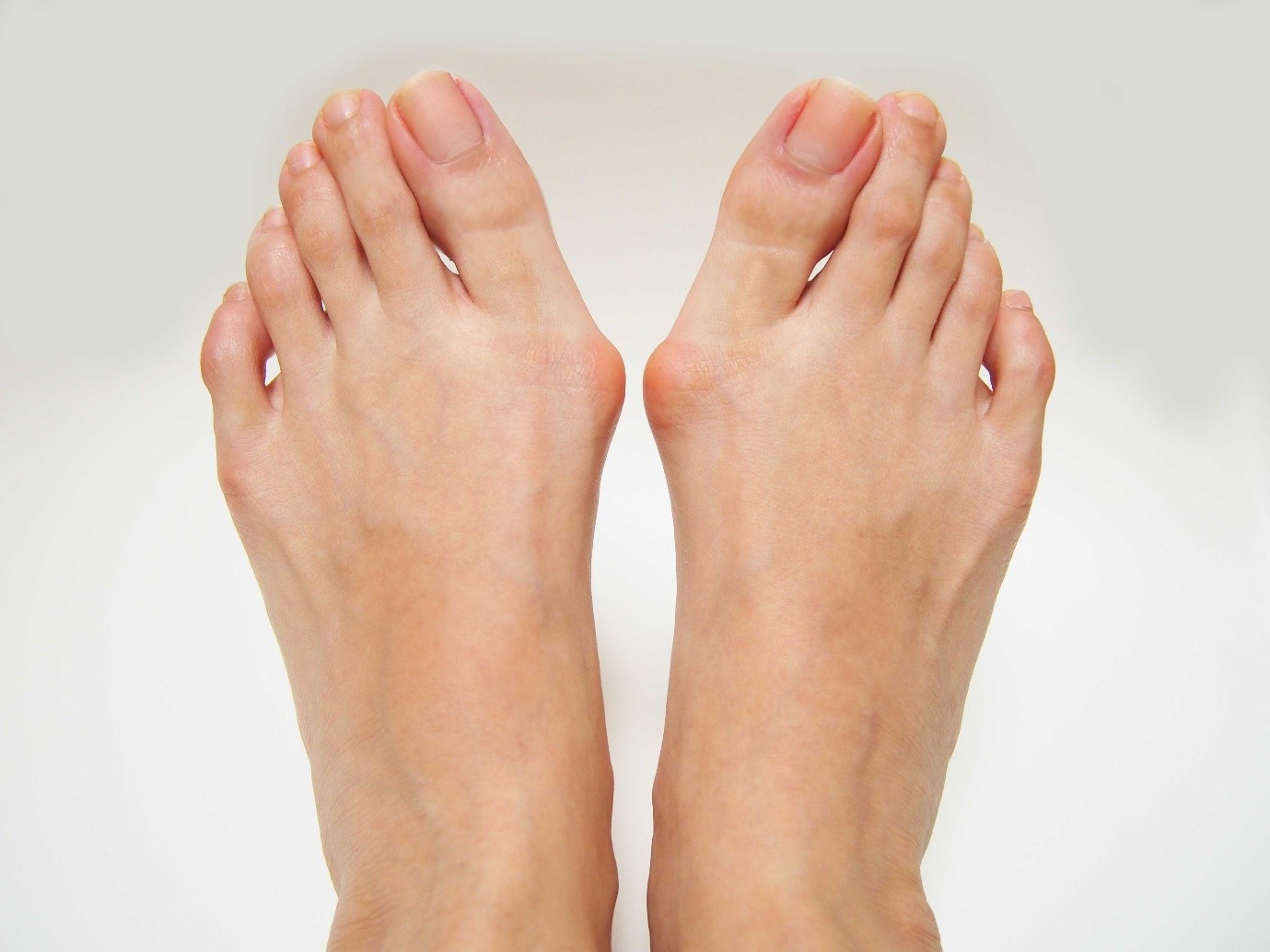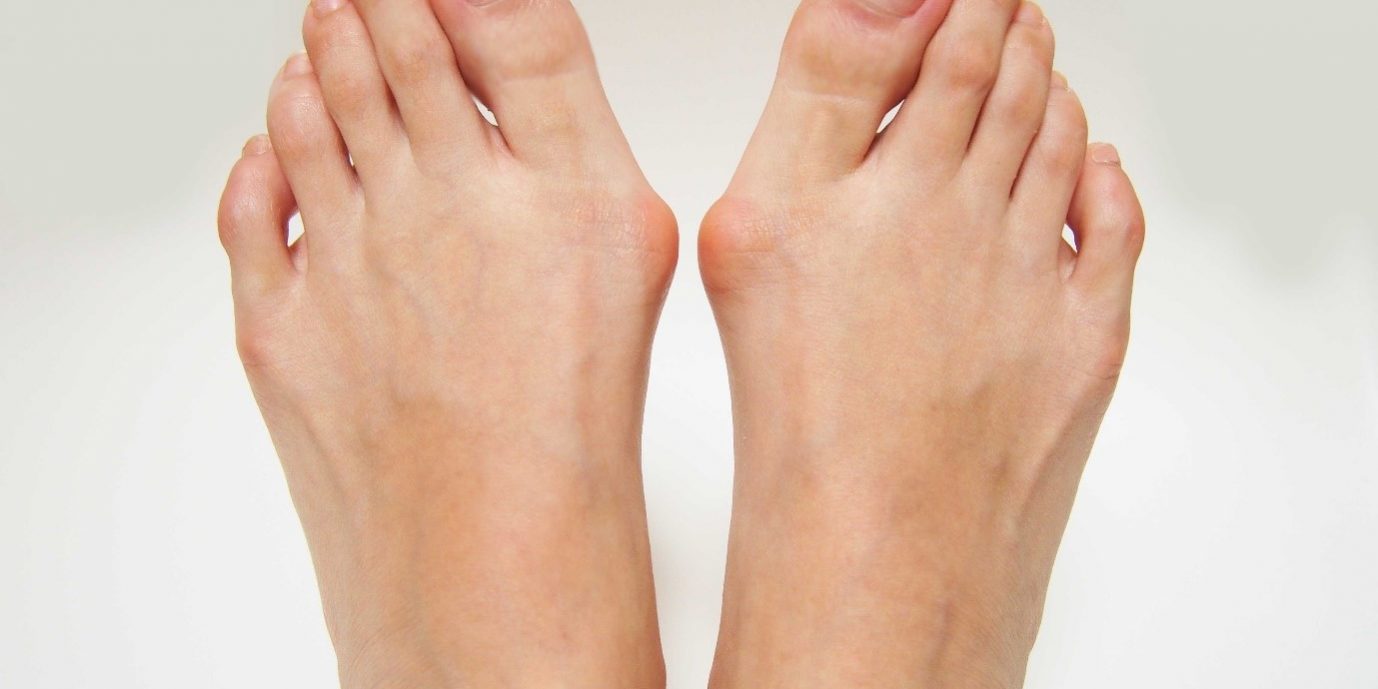What are bunions?
 Bunions are the result of the big toe joint dislocating. The joint dislocation often leads to development of enlarged soft tissue and a bony lump called a bunion. Bunions often cause pain in walking and when wearing shoes. The pain caused by bunions will stop many people from keeping active.
Bunions are the result of the big toe joint dislocating. The joint dislocation often leads to development of enlarged soft tissue and a bony lump called a bunion. Bunions often cause pain in walking and when wearing shoes. The pain caused by bunions will stop many people from keeping active.
Bunions will make walking unstable and can contribute to falling especially in older patients. Bunions make finding and fitting comfortable footwear difficult. Many people who have bunions complain they look unsightly.
What do they look like?
There is a “bony bump” at the top of the big toe. Usually the big toe is turned in towards the 2nd toe.
Who gets them?
Bunions occur frequently (23%) in adults between 18 and 65 years. Frequency of bunions in people over 65 years increases significantly (35.7%). Bunions are more common in woman than men.
What causes bunions?

- Gender. Bunions are 10 times more common in women, probably due to footwear choices. Wearing tight or high heeled shoes between 20 and 39 years of age has been found to increase your risk of developing bunions.
- Footwear. Incorrect shoe size and footwear that is too tight, shallow, pointed, or high heeled.
- Congenital deformity or predisposition. Genetics plays a role in bunion development. Foot structure and function may be inherited.
- Tight Achilles tendons. A tight Achilles tendon can alter the normal mechanics of the arch and forefoot leading to bunion formation.
- Severe flatfoot. This causes abnormal foot mechanics that may lead to the development of a bunion.
- Systemic Disease. Disease such as arthritis can cause changes in the big joint which will alter the mechanics of the foot and causes a bunion.
How do you prevent them?
- Always ensure your footwear is correctly fitted and suitable for the activities you undertake.
- Do not wear high heeled shoes for long periods of time and for long distances.
- Choose footwear that has adequate support and a retention mechanism (laces, velcro straps or buckles)
- Keep track of the shape of your feet as they develop over time, especially if bunions run in your family and seek the advice of a podiatrist early.
What are the symptoms?
The main symptom of a bunion is a pain in the big toe joint. This is due to jamming and shearing forces causing stress in the joint and the surrounding soft tissue. One will also feel pain in the joints next to the big toe.
When should I seek help?
Once you have a bunion it will not resolve on its own. Intervention and treatment are required to either prevent further progression or correct a bunion. This means you should see a podiatrist early if you have bunions.
Seeking podiatric advice and management is very important especially if you have a family history of bunions or work in a job that requires the use of heels or unsupportive footwear. Adelaide Foot and Ankle can provide treatment and advice to help in keeping you active.
What treatments are available for bunions?
Treatment will depend on your individual circumstances, your medical history, the size and type of bunion and the symptoms it is causing. Conservative or surgical treatment will provide the best outcomes.
Conservative treatment

A conservative approach to bunion treatment will include advice on the best choice in footwear. Prescription orthotics often will settle most symptoms of pain caused by bunions.
Prescription of anti-inflammatory medicine and the use of steroid injections can provide great relief of pain.
If your podiatrist or podiatric surgeon has Endorsement for Scheduled Medicines they will be able to prescribe anti-inflammatory medicine or administer steroid injections to treat your bunion pain.
Surgical treatment
Surgery is your option when bunion pain does not improve enough by conservative treatment. Usually, bunion pain has developed so it stops you from keeping active and reduces the quality of life.
In some cases, bunions may require surgery for cosmetic reasons. Bunion surgery is safe and effective. At Adelaide Foot and Ankle bunion surgery is performed as day surgery by Dr. Rob Hermann.
If you have bunion pain or are concerned about the appearance of your feet contact us because we can help in keeping you active.




